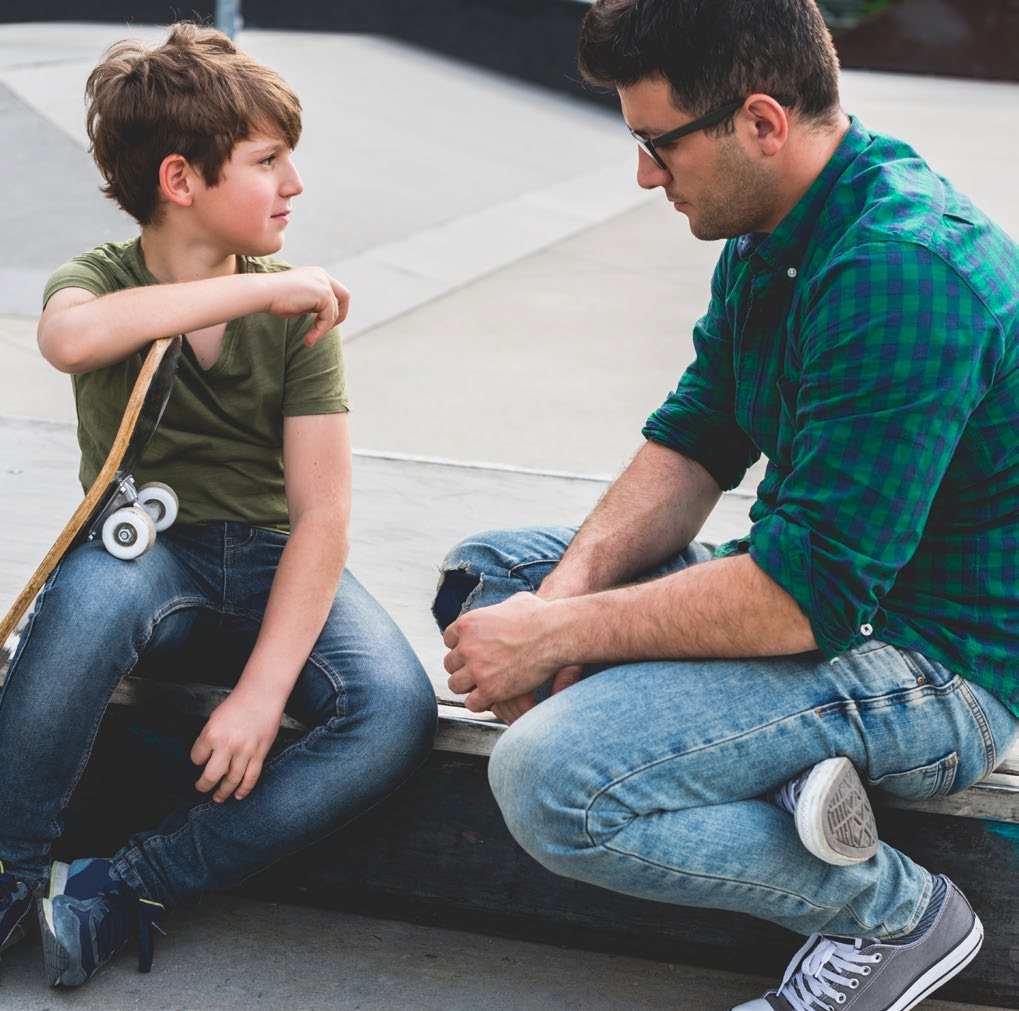As you navigate through this journey, you may find it helpful to turn to others beyond your parents and immediate family. Trusted adults, friends, counselors, teachers, and relatives may become part of your “chosen” family—the one you rely on to help you uniquely and productively cope with all that’s happening. Know that this is okay. You need trusted people to talk to—people with whom you can have open communication and safe conversations. Those you can ask questions of, even if the questions are hard and don’t have easy answers (or answers at all). Your “chosen” family may change over time, depending upon your circumstances and needs. Just make sure that your chosen family members are trustworthy, patient, and have your best interests at heart.
As you work through these family dynamics, remember these helpful actions you can try:
- If you can, try to talk to your parents about the feelings that have been stirred up in you. While you may be afraid it will make them even sadder, simply ask them if it’s okay to talk about it. It may be the best thing for all of you.
- You can also talk with a counselor from school or an outside therapist. Sometimes it’s easier to talk to an objective person who’s trained to listen and help.
- Let people help; it can help them too. People who care about you will be eager to help you and your family. It’s okay to rely on the parents of close friends if you need a ride or favor.
- Sometimes you just need a hug. Your parents might not be around all the time to give you one, but it’s likely that a favorite grandparent, aunt, uncle, or relative will. So, ask someone you trust for a hug; it will be good for them too.
- Try to be productive and do things for others. This can include friends, neighbors—and definitely your family—in any ways that you can. You can help with younger siblings, with chores or errands, and with preparing meals (cooking and having meals together with your family can often be a great way to just be together). Your parents will appreciate what you do for them, even if they can’t express it right now.
- Cry it out—both you and your parents. It can be pretty upsetting to see your parents cry—it may even make you cry too. Cry whenever you need to; a good cry can make you all feel better.
- When your parents argue, it can be pretty upsetting. Just know that their emotions are not directed at you. Try to remember they too are navigating uncharted, difficult territory and feel fear, sadness, and uncertainty too, even though they’re older.
- Do what you can to stick with your regular structures and routines, whether it’s school, work, sports, lessons, or clubs. Finding some normalcy in your daily life is important. While your parents may be too busy to eat dinner with you every night, you can suggest making one night a week “family night,” a time for you to all sit down at the table together and catch up on each other’s lives.
- It’s okay to not be at home sometimes. You may feel like you must be home with your parents all the time because something might happen on the case or they need you there. Try not to carry that burden; it’s important to your own health and wellness to have safe and positive activities outside the house. Just remember to always tell your parents where you are going and plan for how you can contact each other.
- Be patient with your parents’ protectiveness. Recognize that your parents are overcome with worry and may be over-protective or cautious with you and your siblings. Try not to resent it. Even though it may not seem like it, they are worried about you too. It’s okay to talk with them or the people you trust about feeling closed in.
Through this tough situation, you’ll likely come to realize there are many people who care about you. Some of your extended family may come to stay for a while. Close friends and neighbors may drop off food and ask if there’s anything they can do. Your friends’ parents may visit often to make sure you and your parents are doing okay. It can seem like every day after school when you walk into the house, someone new has come to visit or stay. And while sometimes this may feel good, at other times, it can be a real hassle.
And despite having all these people and offers to help all around you, you can still feel alone or even forgotten. It can seem wrong. You might even feel guilty about it. But remember: your life and routine have been disrupted. Others may be focusing mostly on your parents’ well-being, and that can feel like they’re ignoring what you need right now. So, with kindness and courage, try to share with others what you need to feel safe and supported.


